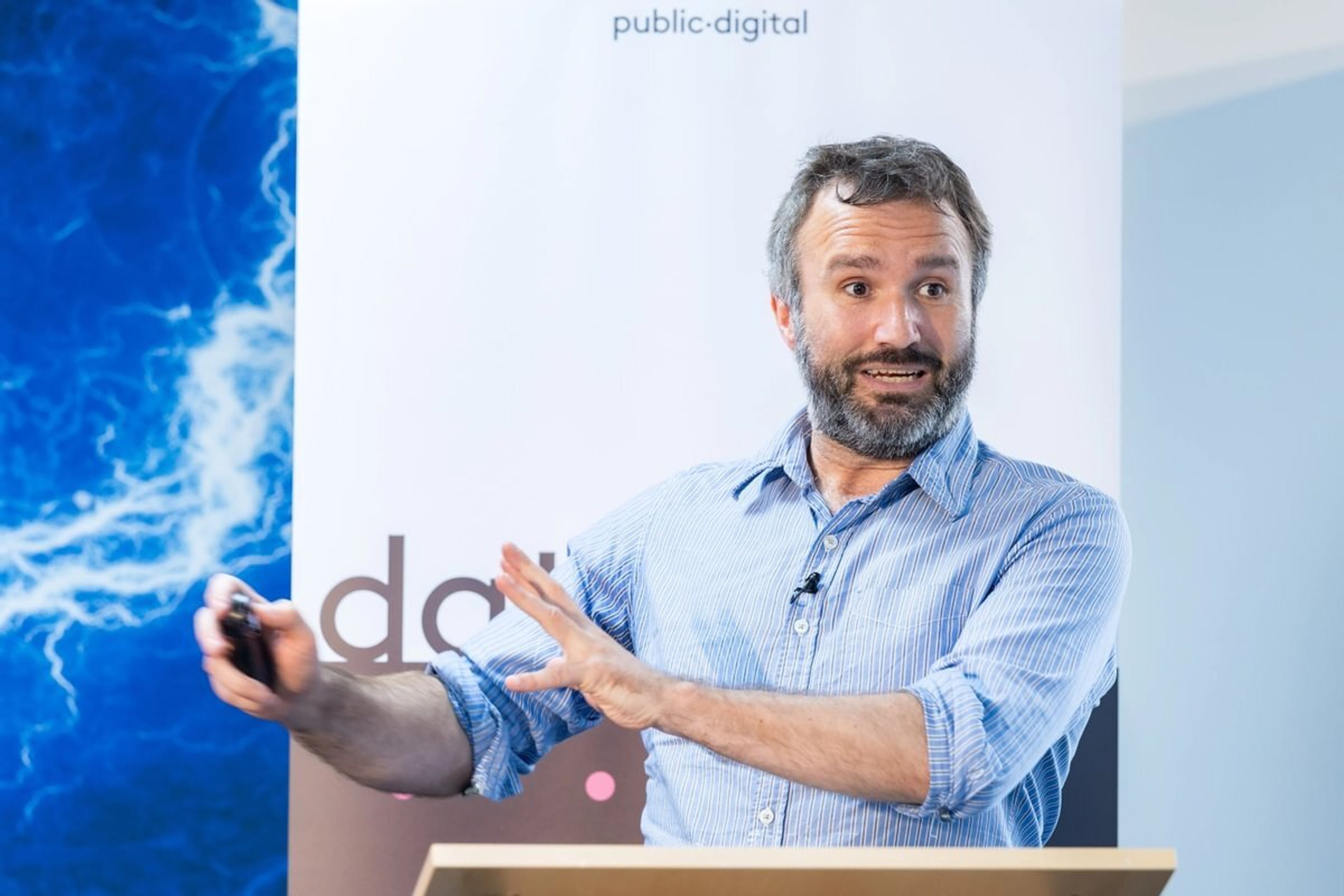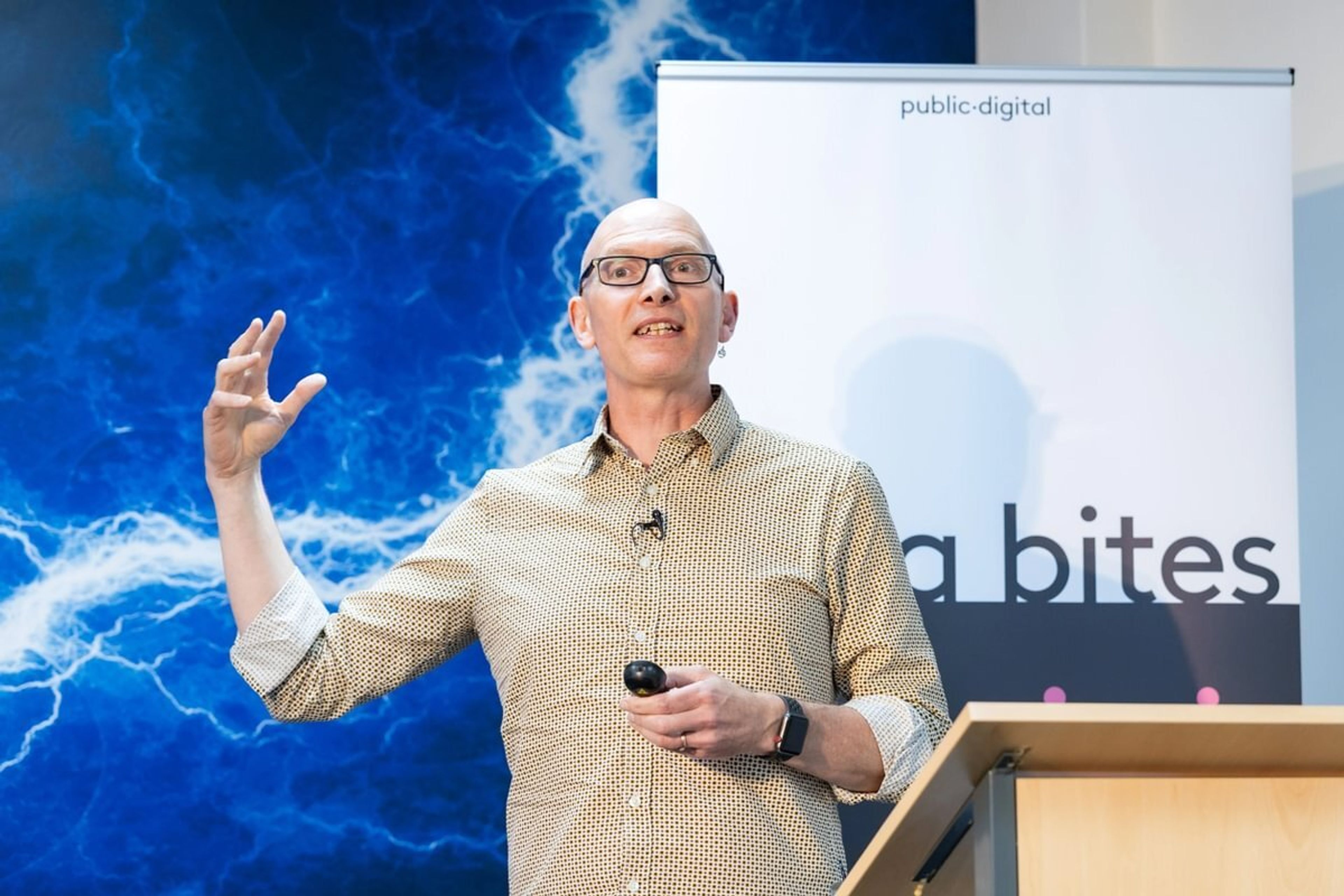
Digital sustainability in UK government
Tom Parry gave us an overview of efforts within the department and UK government more widely around digital sustainability.
Chris, Product Manager at Icebreaker One, talked about smart data schemes through an environmental lens.
(You can see his slides, too, published under a CC-BY licence.)
Icebreaker One is a non-profit that has been working on data governance for over five years, convening hundreds of organisations across sectors to explore, define, design, and implement the data sharing infrastructure needed to move the economy towards a more sustainable future. All of Icebreaker One’s work is published openly, aiming to accelerate efforts by any organisation, regulator, government department, or association that has an opportunity to put data to use to reach net zero.
The problem is clear: huge amounts of data are generated across financial systems, energy, water, transport, our built environment, and the natural world. As recognised in the UK Government’s Data Use and Access Act (DUAA), realising the value of this data—and reducing risk—requires connecting it with those who need it, under the right protections. Trusted data supports net-zero investment decisions by linking real economy and financial economy data across organisations and sectors. But data sharing is complex, with legal, regulatory, public benefit, and technical dimensions. Initiatives that focus solely on building technology often struggle with adoption and longevity.
Smart data schemes offer citizens and businesses the ability to share their data securely and under their control. If designed well, this data can be used only for specific purposes that benefit the public. Open Banking, for example, enables easy account switching, money management, and fee-free payments. A smart meter scheme could lower bills and reduce emissions by shaping energy consumption, while a product information scheme could improve consumer choice through personalised price comparisons without identifying individuals.
Success will be evident when there is a Cambrian explosion of data-driven innovation accelerating decarbonisation and boosting biodiversity. New schemes, or iterations of existing schemes, will be identified, designed, and implemented at scale within days or weeks, with robust security and governance to maintain user confidence.
The main hurdles lie in the multidimensional process of turning a scheme from a good idea into functioning Digital Public Infrastructure. This includes clarifying purpose, defining scope, establishing incentives for organisations and users, determining legal and procedural rules, setting data quality and processing assurances, and designing scalable, interoperable operations. Icebreaker One has faced these challenges over the past five years—sometimes stumbling, but always learning.
On improving data governance in government, Icebreaker One advocates for an “adopt and adapt” mindset rather than “start from scratch.” Reusing processes and outcomes across sectors accelerates public benefit, increases confidence, and improves legal and technical compatibility, avoiding the pitfalls of exceptionalism.
Chris also shared some links:
Join the Constellation, an expert network for people working in data sharing
More on the Perseus smart meter data sharing scheme
